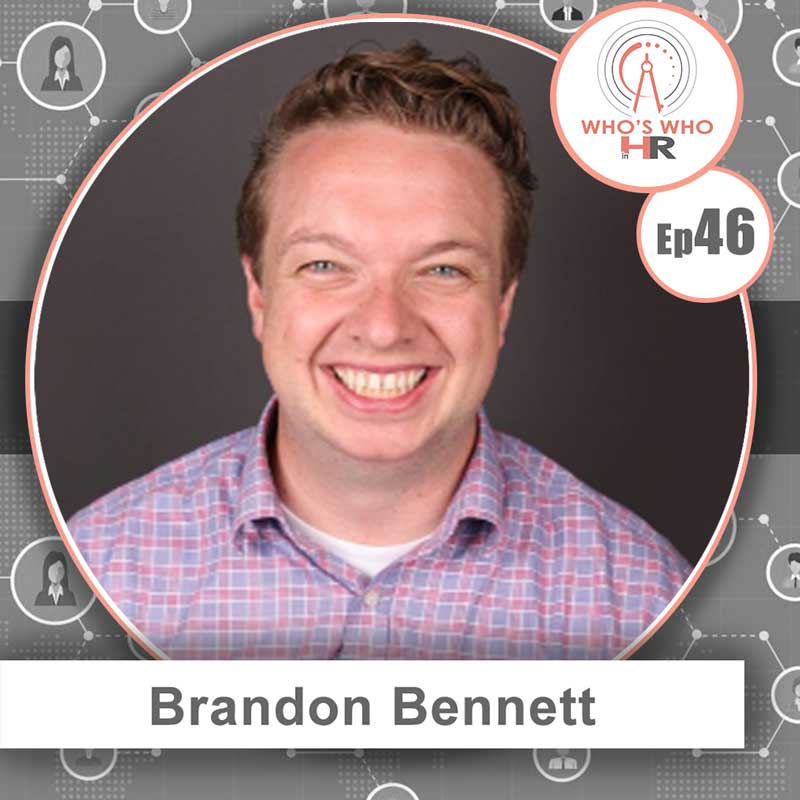046
Brandon Bennett
The Importance of Principles
A social scientist disguised as a business leader, Brandon Bennett leverages his research background and MBA to create people solutions to organizational needs.
Currently, he supports Lamb Weston as a Sr Director of HR. In this role, Brandon is able to leverage both his startup and large corporation backgrounds to build new processes for a culture that is a hybrid of the two.
Prior to Lamb Weston, Brandon worked to create and implement HR processes to transition Mohawk from a startup to a publicly-traded company. Brandon gained OD expertise and HR Generalist experience at Nature’s Bounty as he transformed the North American supply chain into a High Performing Organization, restructuring culture, compensation, training, organizations, and teams. Additionally, he gained expertise in talent management while working at the Kellogg Company as a recruiter and leadership development specialist. Brandon received his MBA with an emphasis in Org Behavior and Human Resources from BYU’s Marriott School of Management.
Fascinated by the stories people and organizations tell themselves, Brandon is most engaged when helping individuals and groups do things they’ve never considered to achieve what they never thought possible. He sees the future as a cyborg, with leaders confident in leading people and technology.
Brandon learned Organizational Effectiveness by necessity to manage his family of seven. Everyone has a role and responsibilities as the family camps, hikes, and explores the country through the National Parks and Monuments.
More from Brandon…
Brandon shares with us that the “best practices” aren’t always cut and dry. What works for one company or team may not work for another. Instead, he believes we should look at the principles and paradoxes leaders are dealing with as those are probably more relatable.
“One of the reasons why it’s exciting [to be in HR] is because we know we should be better. As we’ve earned our seat at the table and demonstrate that HR has value, has strategic value, and can move the needle. We start measuring how we move the needle. I think we realized, oh shoot, we have some gaps here.
So, you do see companies blowing apart performance management, struggling to figure out what to fill in that void, right? Some of them end up putting it back together just with a different marketing campaign and at the end of the day of it with within interviews, we know some things that work better, but they’re not things that you can scale. You have to be economical or even work within the legal practices of different countries. So, we’re trying to figure it out. We’re using AIs and technology and machine learning to help us out in it. But at the same token, we I think we got to be careful that as machines learn from us that they’re not learning those older “best practices.”
I think, and you’ve heard it in me when I get together with HR people, many conferences are focused around, “Oh, let’s share this case study and the best practice around how do you put this training program together? How do you build a good mentorship program?” A leader will go through and tell you, “Hey, here’s what we did. And here’s our approach. And here’s what you can do.”
At the end of the day? No, I can’t. I can’t copy and paste that to my organization, it will not succeed. Tell me instead of best practices, what were the principles that you were wrestling and balancing the paradoxes that kind of come as you deal with an organization and individuals and the business? How did you manage those paradoxes? Help me understand that and how I can do that in my organization because I’m probably dealing with those same paradoxes. But I’m going to come to a different solution than you did because I can copy and paste to Toyota all the time, right? They talked about improving manufacturing, they bring people all the time and to see their plants. You want to see Lean manufacturing? Come on in, come see what we do. We’ll show you everything. Walk the floor with us.
They did it because they knew as people tried to just take those over the shadow boards, we got to go do shadow boards. Oh, they do this five S or five why’s. Let’s go do that. They knew that they couldn’t apply those in those companies because they weren’t the same company. It wasn’t the same culture. It wasn’t the same team. So, they’d be applying a practice without understanding the principles behind it.”









